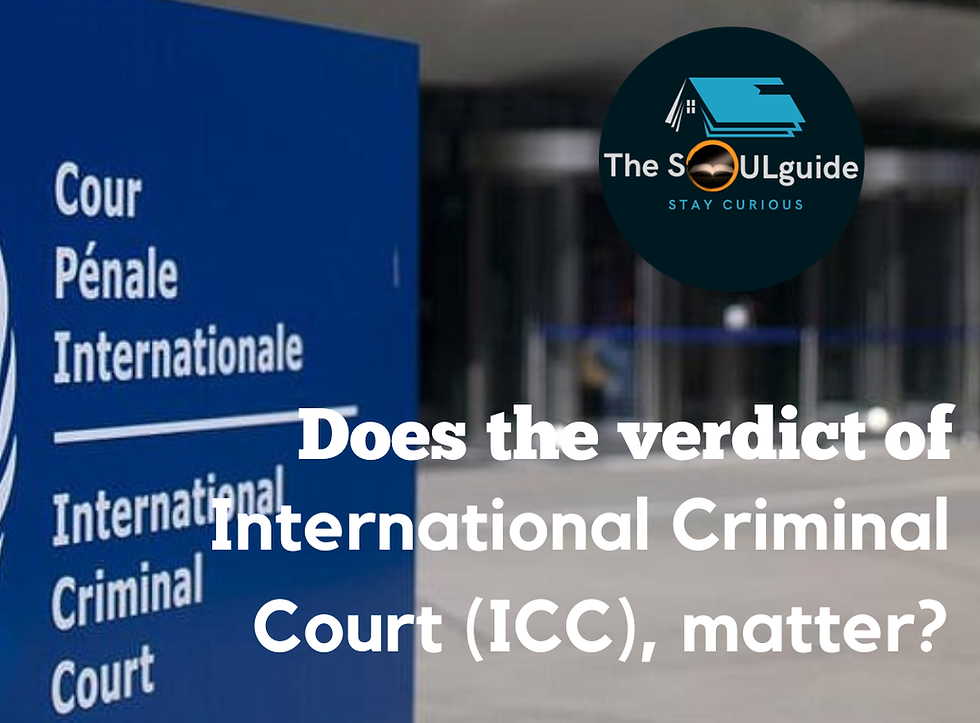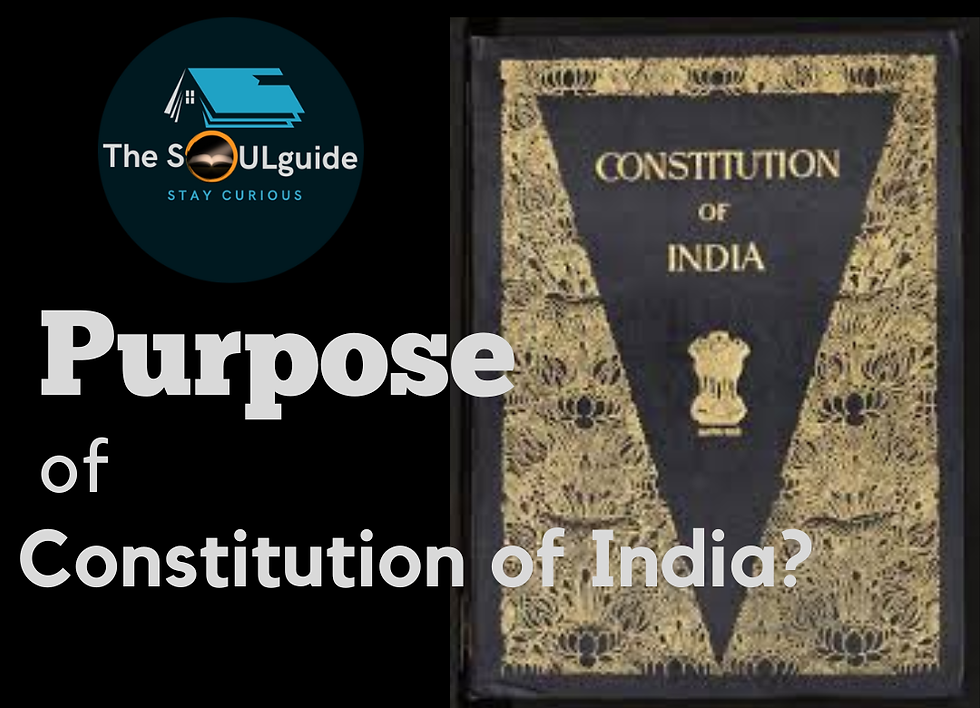What is Emergency? How it is imposed and what does the constitution says about it?
- TheSoulGuide

- Jun 25, 2024
- 4 min read
The Modi government talks alot about the Emergency imposed by Smt. Indira Gandhi in 1975, allegedly the emergency jailed many notable leaders of the Jana Sangh (now BJP) and banned the RSS in the country. But how is the emergency imposed? What are the constitutional provisions for it?

The Constitution of India defines three different kinds of emergencies. They are as follows:
National Emergency
This is the emergency which was imposed on 25 June 1975 by then government. The government of India has the powers to impose National Emergency when the country is in a war with another country, or is at a threat of external aggression.
It is described in the Article 352 of the Indian constitution, it is declared by the President of India.
National Emergency, is also known as an “External Emergency” in case it is declared on the basis of War. On the other hand, a National Emergency declared because of some threat by internal sources or on the basis of “armed rebellion” is termed as “Internal Emergency”. It isn’t necessary that the emergency declared is prevalent in the entire country, it might be applicable only in a part of it.
Prior to the 44th Amendment 1977 to the constitution of India (done by Janata Party government of Shri Morarji Desai) the Cabinet could ask the President to impose emergency without any written advice and the President had to accept it. But post the 44th Amendment the President has to get written advice and can also send it back for reconsideration if deemed so fit.
Also, the decision of emergency can be questioned by the court, if the court feels that the decision is taken on irrelevant grounds.
Approval by the Houses
The National emergency must be approved by both the houses of the Parliament, that is the Lok Sabha and the Rajya Sabha, within the time period of one month starting, from the first sitting of the Lok Sabha provided the Rajya Sabha had approved it already. On being granted permission, the emergency can last for six months and can be extended to as long as needed on renewal from the houses after every six months. Emergency should be passed by a majority of the members of the houses or by 2/3rd of the majority of either house present at the time and voting.
Revocation of the National Emergency
Though the emergency imposition needs the approval of the houses, the revocation of the same doesn’t need any permission from the houses. It can solely be revoked by the President when he feels the situation has been calmed and no further emergency is needed.
In another case, it should be revoked if its renewal after six months is discarded by the Lok Sabha.
During a National Emergency, the centre becomes the Executive power and directs the state on any given matter. Central government can make laws on a matter that comes under the states if there is a state of National Emergency
A national emergency also entitles the President to distribute revenues between central and state; that is, fund transfers from central to state can be both reduced or cancelled as per the willingness of the President
The tenure of Lok Sabha might be extended in case of emergency and increased by six months at a time
Fundamental Rights are not entirely suspended during the time of National Emergency but can be suspended by the president under the article 359
Another kind of a emergency is the President’s Rule.
It is applied when the central government or the President is of the view that the state government is not abiding by the constitution and it is seen as impossible to run the government in the state.
Grounds on which a President’s rule comes into play are:
On a Governor’s Report to the President stating that the state government is unable to run smoothly and perform its tasks
When a state fails to follow the Central government’s direction
Effects of President’s Rule
When the President’s rule comes into play, the President becomes the centre of authority and takes over the powers of the State Government
He also mentions that the state legislature’s power will be exercised by the parliament
The President can also suspend constitutional provisions if he deems it necessary
Another provision is of the Financial Emergency
If the President feels that the financial stability of the country or a part of it is threatened, he can declare Financial Emergency. Also, the President couldn’t be questioned on his decision regarding Financial Emergency before the 44th amendment. The 44th amendment stated that Judicial power is over the President’s satisfaction.
Approval and Duration
Financial Emergency should be approved by both houses of the parliament.l within 30 days of its first sitting.
There is no fixed time period for which the financial emergency runs, and also, no permission from any house is required for its continuation.
The emergency is seen as the dangerous and anti democratic in its nature as it curbs the rights of its citizens and give blatant powers to the union to arrest anyone without any evidence or proof of wrong doing.
What are your views? Lets us know in the comment section.
Get membership to feature your article. Check here.




Comments